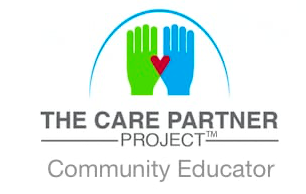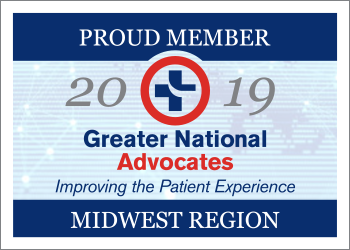 A lot of people reach out to me to talk about issues with their aging parents. It’s usually when there’s already a crisis going on. We know it’s better to plan ahead in these situations. What are some things you can do to plan ahead and be prepared for when a health crisis happens? 1. Advance directives - these include designating a health care power of attorney, filling out a living will, completing a DNR (do not resuscitate) order. If you’re a regular reader of my blog, you know I talk about these things often! Key point: don’t just list someone as your healthcare POA, ask them if they are comfortable assuming this role and talk with them about your wishes. Here’s a link to a previous blog. 2. Will, Trusts, Power of Attorney for Property - this is not my area, but it is definitely important to work with an attorney to get these set up. Leaving your family to deal with probate and the messiness of not having a will is a disaster waiting to happen! 3. Find out what assets your parent(s) have and where they are located; e.g., what bank(s), investment firms, etc. Do they have a long-term care insurance policy? This is important for planning for long-term care, if necessary. Assisted living, memory care, long-term skilled care, home caregivers are incredibly expensive. It is important to understand what assets are available for these types of care - no one wants to think they will ever need it, but many many people do. Be sure someone is listed as a beneficiary on each account and, if possible, fill out release forms so that people who control access to these assets are able to speak with designated representatives. 4. Help your parents set up portals if they have not done so. If they have set them up, ask them to share their login information. This makes accessing information and asking questions of providers/insurers so much easier! Some examples of portals you may need to access if they are unable to care for themselves include: a. Medicare (medicare.gov) - You can see your parent(s)’ Medicare number, check claims, see what Part D plan they have, send messages if there is a problem. Also, either: - Part D and Supplemental/MediGap insurance portals, or - Medicare Advantage insurance portal b. Health system portals - It is critical to have access to what medications your parent takes, their allergies, health history, test results, providers, and more. It’s difficult to be an effective advocate for someone without knowing this information. The portals (eg, MyChart) have a place to add people as emergency contacts as well as upload advance directives. If your parent sees physicians in different health systems, you can link those portals so that you can see everything in one place. c. Social Security (login.gov) - You are allowed to list an “advanced designation of representative payee” who could manage your benefits if you became incapable of doing so. You can also access your Social Security statements. 6. Communicate! Cultivate open communication… this can be challenging if it’s not the way things have worked before. I’ll talk more in my next blog about strategies for having these tough conversations. Please contact me if I can help with any of this! [email protected] Bottom line: Trust me, you’ll be glad you took the time to take care of these tasks!  Sometimes people will tell me that they feel inadequate when dealing with the health care system. I always say that no one should feel that way; rather, our health care system is designed to be confusing. When you’re not feeling well, it’s difficult to make sense of it all and remember everything you’re supposed to do. This blog is about how that can even happen to a wonderful patient advocate when she has a medical emergency! Spoiler alert: I’m okay! In December, I fainted and hit my head on the floor, was briefly unconscious, couldn’t speak at first, and my head was bleeding. Fortunately, my husband - who normally sleeps through everything! - heard the load thud and ran in right away. He said it was pretty scary. He took me to the ER. It was around 2:45am. My memory of what happened that night/morning is pretty fuzzy. I do remember thinking “I’m a patient advocate, I need to advocate for myself.” However, I had a head injury (concussion) and was in no shape to be an advocate! I recall the nurse going through my medications and supplements, and confirming my medication allergies. I later wondered if my husband would have remembered that I’m allergic to sulfa and penicillin (he didn’t remember our now 27 year-old son’s penicillin allergy when he was 12 and had to go to the ER for stitches - but that’s a story for another time!). That was a reminder to me to review that information with my family members. I had an EKG, chest x-ray, and a head and neck CT scan. I know I told my husband a couple of questions that I wanted to remember to ask the doctor. I don’t remember what the questions were or if either of us asked them. My head just felt so foggy. I recall that the doctor came in to tell me that all my tests were okay and I could leave. She was practically out of the room before she finished telling me that. I yelled to her that I had questions and she turned back to me but it was very rushed. After she left, the nurse shrugged and told me that they only have one doctor staffing the ER overnight and the ER was full. The nurse helped me walk to the bathroom and back. She then asked me if I felt okay to go home. I told her that my legs felt very weak and “weird.” She said “well, we’re completely full but if you want to stay here, we can wheel you to a back hallway and you can rest there.” Um, no! I did what I think most people would do and said I’d rather go home versus lying in a back hallway of an ER while Covid, flu, and RSV were filling up hospitals around the country. I probably should have asked her to relay that info to the doctor but, as I keep saying, it was very hard to think. I had leg weakness for a few weeks but did have two telehealth doctor visits about that in the few days following my ER visit. The nurse then told my husband to go get the car, warm it up, and that she’d bring me out. This is the point where the nurse definitely did not follow patient safety protocol! Once my husband left the room, she started going through the discharge instructions with me. I remember thinking that he should have been there to listen because my brain really was not registering everything. However, I didn’t have my cell phone with me and couldn’t call him. And, honestly, I really just wanted to go home, wash the blood out of my hair, and sleep! As patient advocates, we know that everyone needs someone with them at discharge… and I think that every nurse, doctor, hospital administrator, etc should know that too! It is so important to understand what signs and symptoms require a trip back to the ER or a call to the doctor. I really wasn’t fully comprehending all that she was telling me. Reflections on this experience: (1) I understand even more why people of any age and ability need someone with them in the hospital. I’m very educated about how the system works and about patient safety protocols BUT when you have a situation that requires an ER visit or hospital stay, it is really difficult to think clearly; certainly that applies to a head injury situation! (2) This was a reminder of the importance of regularly reviewing medications, allergies, health issues with whoever the people are who may be in the ER or hospital with you. (3) During an ER visit about 10 years ago, I recall the ER doctor telling me that the ER is about dealing with acute health issues; if they don’t find anything terrible, they send you home - even if they haven’t figured out why the issue happened or addressed all your symptoms. That’s exactly how it felt on my recent visit. Be sure to follow up with your regular doctors after your ER visit. (4) This was another reminder that our health care system can do better Obviously, that is not news to me, or probably to most of you reading this, but it was a first-hand experience of it. In this case, the most glaring example is that the nurse should have gone through the discharge instructions before sending my husband to get the car. We’ll see if the hospital system takes my feedback into account. |
AuthorWrite something about yourself. No need to be fancy, just an overview. Archives
February 2024
Categories |

 RSS Feed
RSS Feed



